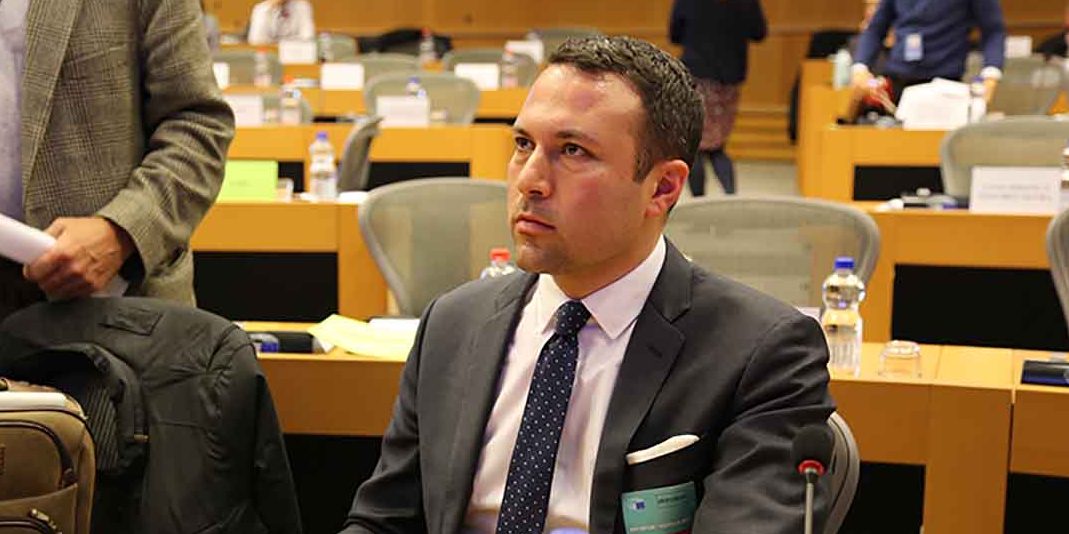Statement of
JOSHUA KIRSCHENBAUM
Alliance for Securing Democracy, the German Marshall Fund of the United States
BEFORE THE SPECIAL COMMITTEE ON FINANCIAL CRIMES, TAX EVASION AND TAX AVOIDANCE
Concerning
“Money laundering cases involving Russian individuals and their effect on the EU”
January 29, 2019
Chairman Ježek and esteemed members of the TAX3 Committee, thank you for inviting me to this important hearing. I am honored to appear before the committee today to discuss a problem that demands a transatlantic and ultimately a global response. Illicit financial activity emanating from Russia and the Commonwealth of Independent States (CIS) is an issue that deserves to be high on the bilateral EU-U.S. agenda.
Recent years have witnessed a profusion of money laundering scandals at EU banks. The common themes: billions of dollars laundered through one institution; frequent ties to the CIS, particularly Russia; lackluster fines; and an absence of criminal prosecutions. Even when such schemes may have the immediate goal of facilitating corruption or criminality “over there,” toleration of such activity inside the EU creates risks at home. Professional facilitation networks that control opaque channels used for, say, capital flight will happily offer their services to those engaged in political interference in EU member states. Allowing banks and others to develop businesses dependent on opaque or illicit money from the CIS also establishes constituencies more likely to be amenable to Russian political or economic influence. And concerns about Russian influence today may be replaced by unforeseen geopolitical dynamics in the future.
The scandals have often, but not always, been concentrated in smaller member states with large offshore banking sectors. But anti-money laundering (AML) supervision is inadequate not only in countries such as Cyprus or Latvia, where the business is most prominent. The activity has festered because of weak EU-wide enforcement of strong AML laws. A system in which banks are fined a few million euros for illicit activity valued in the billions is destined to fail. Exacerbating the problem of weak enforcement, AML supervision is a national responsibility throughout the EU, while licensing, fit and proper checks, and qualifying holding approvals are the remit of the European Central Bank (ECB) within the euro area – and financial services are passported across the single market.
While it may be possible to tackle the problem state-by-state, I agree with Danièle Nouy of the Single Supervisory Mechanism and Benoît Cœuré of the ECB Board and support a central EUauthority focused exclusively on AML.1 The agency should oversee banks and non-bank institutions across the entire common market, enjoy political independence, and develop unique supervisory expertise. In keeping with the principle of subsidiarity, the new agency should work closely with national competent authorities, who would jointly carry out day-to-day supervision. An empowered central agency should conduct aggressive, proactive examinations and harness cross-border data; issue dissuasive fines accompanied by public findings; and make full use of powers to restrict business operations and impose management and ownership changes. Finally, it should establish deep relationships with supervisors in partner jurisdictions including the United States, enabling ongoing and rapid exchange of information on complex, international networks.2
Banks play a unique role in the financial system, but they present only the most pressing challenge. With the rise of fintech, cross-border payments may increasingly occur outside the formal banking system, underscoring the importance of strong supervision of money transfer businesses, a problem with which the United State must also grapple. Securities trading in the EU, U.S., and elsewhere is far less transparent than international payments conducted by banks or money transfer businesses, and the beneficial owners are often unknown even to the counterparty institutions. There is room for basic enhancements to transparency.
As ECB Vice President Luis de Guindos has warned, much activity has migrated from banks to investment funds, where systemic dangers may lurk.3 Illicit actors may likewise seek to embed themselves in hedge funds, venture capital firms, and private equity firms, attracted by the opacity and relatively lighter supervisory touch. While the EU rightly prioritizes improvements to bank supervision, it should also begin to assess the existing supervision of private investment funds and independent broker-dealers. Fortunately, and in keeping with international standards, private investment funds are subject to AML program requirements in the EU, while those requirements have been stalled in the United States for 17 years.
Beyond the risk that investment funds or securities trading will be used to launder money, the EU, like the United States, does not have a sense of who invests in it, where, or why. Governments maintain an open investment posture but do not know who owns what. This environment is conducive to state or non-state actors from authoritarian countries building up large, strategic investment positions without disclosing them to supervisors, regulators, or law enforcement. While the EU has moved to put in place more robust investment security review procedures, one can only review transactions about which one knows. More transparency of direct investment and portfolio holdings will allow regulators and law enforcement to steer resources to high-value areas. This, too, is an area in which cooperation with the United States and other partner countries will be essential.
More aggressive criminal prosecution of illicit financial facilitators, bankers, and professional service providers would have a huge deterrent effect. Even in the most optimistic scenarios, though, securing convictions will remain difficult. Prosecutors must demonstrate that defendants facilitated criminal activity or transactions involving the proceeds of a crime, and they must prove that the accused did so knowingly. Therefore, the EU, like other jurisdictions, will need to
lean heavily on effective supervision of the financial sector, financial and corporate transparency, and political pressure on recalcitrant players.
I am grateful for the opportunity you have provided me to speak before the European Parliament, and I would be happy to answer any questions you may have.
- For the Nouy statement, see March 26, 2018 testimony before the ECON Committee, described in November 20, 2018 ECON Committee briefing paper accessible at europarl.europa.eu/RegData/etudes/BRIE/2018/624410/IPOL_BRI(2018)624410_EN.pdf. For the Cœuré statement, see “ ECB’s Coeuré calls for single EU agency to take on money launderers,” Jim Brunsden, Financial Times, September 7, 2018.
- A detailed proposal for the creation of a central European Anti-Money Laundering Agency is found in “A better European Union architecture to fight money laundering,” Joshua Kirschenbaum and Nicolas Véron, Bruegel, October 25, 2018.
- “Coming to the forefront: the rising role of the investment fund sector for financial stability in the euro area,” Luis de Gindos, 21st Euro Finance Week Opening Conference, Frankfurt am Main, November 12, 2018.



